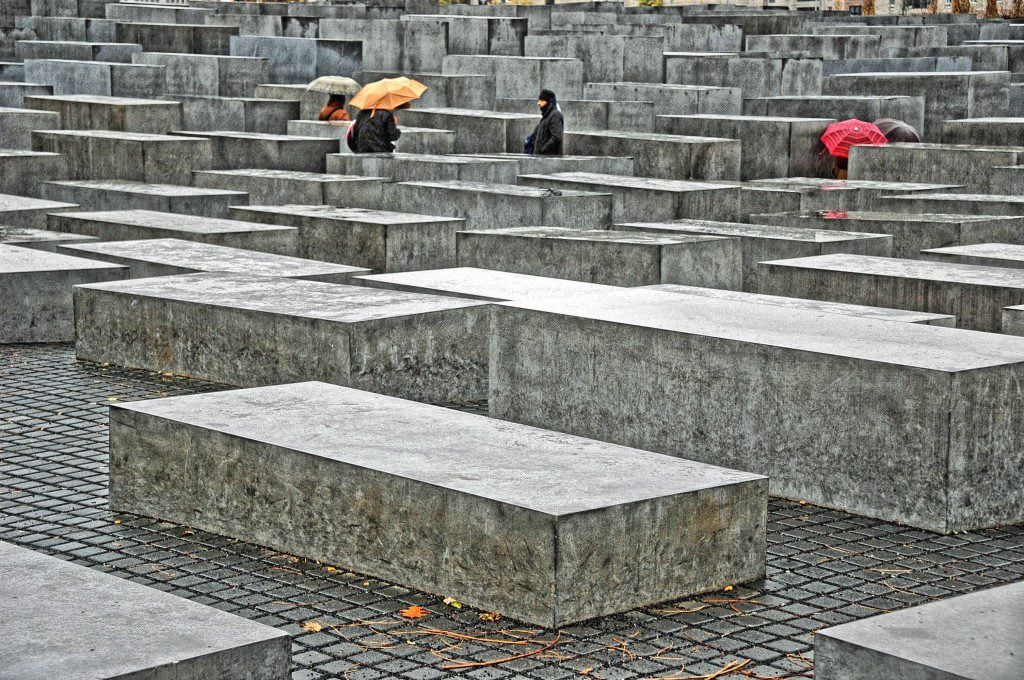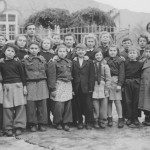
Back a couple weeks ago, a new poll showed that Americans displayed, well, undesirably-low levels of knowledge about the Holocaust. At the time, I wrote skeptically about it, suggesting that more important than knowing more details on death camps is understanding that genocides have taken place at other times and places, even far more recently.
Now the head of the consulting firm which conducted the poll has co-authored an op-ed in the Washington Post, “Want to fight anti-Semitism? Teach people about the Holocaust.,” by Douglas Schoen and Arielle Confino. But it’s not particularly persuasive.
In the first place, very small percentages of the population of the United States or other Western countries lack a basic understanding that “the Holocaust refers to the genocide of Jews by Nazis in World War II.” Per the ADL poll I cited in the prior blog post, the percent of Americans who both report having heard of, and agreeing with the historical account, stands at 93% and 89% respectively – slightly better percentages than those for Australia and Canada, for example. But, again, per the ADL poll, antisemitic attitudes are revealed not through such statements as “Hitler should have finished the job” or “the Holocaust is a lie perpetrated by the Jews to get sympathy” so much as “Jews have too much power in the business world/international financial markets/global affairs” or “Jews are more loyal to Israel than to this country/the countries they live in” — a statement 33% of Americans, 32% of Canadians, and 41% of Australians agreed was “probably true.” (You can get lost in exploring these percentages for various countries at the link.)
But back to the Post article:
Our survey found that the more Americans know about the Holocaust, the more likely they are to eschew Nazism, intolerance and any vestiges of anti-Semitism. The message is clear: We need a broad-scale — and indeed, international — strategy to educate people about the Holocaust.
This is, it seems to me, confusing causation and correlation, since people who care enough to learn the history of the Holocaust are more likely to be anti-antisemitic in the first place, and people who are uneducated, in general, are more likely to fall prey to stereotypes.
The authors also discuss the proportion of the population who say it is “acceptable” to hold neo-Nazi beliefs — but the use of the term “acceptable” is ambiguous in this and other polls. Does “accepting” neo-Nazi belief-holders mean welcoming them and encouraging them? Might people have considered” acceptable” to refer to “not jailing or doxxing” these people, or “upholding their right to free speech and free assembly”?
In any case, I question whether the recommended solution, more Holocaust education, is the right path forward. In Illinois, there is a requirement to have a Holocaust education unit in 8th grade, but, for my sons at least, this was then very much divorced from anything else in the curriculum, be it World War II or genocidal regimes or human rights. Then in 10th grade, there’s a course on World History which, especially because of the fact that each part of the globe now needs equal time, zooms past World War II lightning-fast. How can students understand the context, other than “Germans were Bad People”? How can one begin to understand the causes of the Holocaust with only this superficial understanding, or with, as the authors wish, the added listing of more camps, more horror? — which then leads to the repeated claim that Bush/Trump/etc. is as bad as Hitler.
And I doubt that additional details in the body of one’s Holocaust knowledge ensure that one is more resistant to the siren call of the anti-Israel BDS (boycott, divest, sanctions) movement on campus, which tends to offer the message of, “the Holocaust was bad but has nothing to do with the present day” and “just because they were victims then doesn’t mean they’re innocent now.” So ARGH.
Yes, students need a better grounding in history. But I am leery of doing this “special-unit” style, with a unit on the Holocaust, and another on African-American history and a third on LG+++ history and so on, without being able to put any of this into context. And none of this is going to get rid of whatever attitudes may exist among whatever segment of the population, that lead them to say, “Jews have too much power in the business world” (16% in the U.S., 23% Canada, 24% Australia).
Postscript: You’ll note the article uses the word, “anti-Semitism” and I use “antisemitism”; this was usage I learned back in a course on the Holocaust back in college, the rationale being that what’s going on is not opposition to Semites, as a group of people, but, rather, the word denotes very specifically opposition to Jews, so that the proper spelling is as a single word without the hyphen which is misleading.
Image: Holocaust memorial, Berlin












